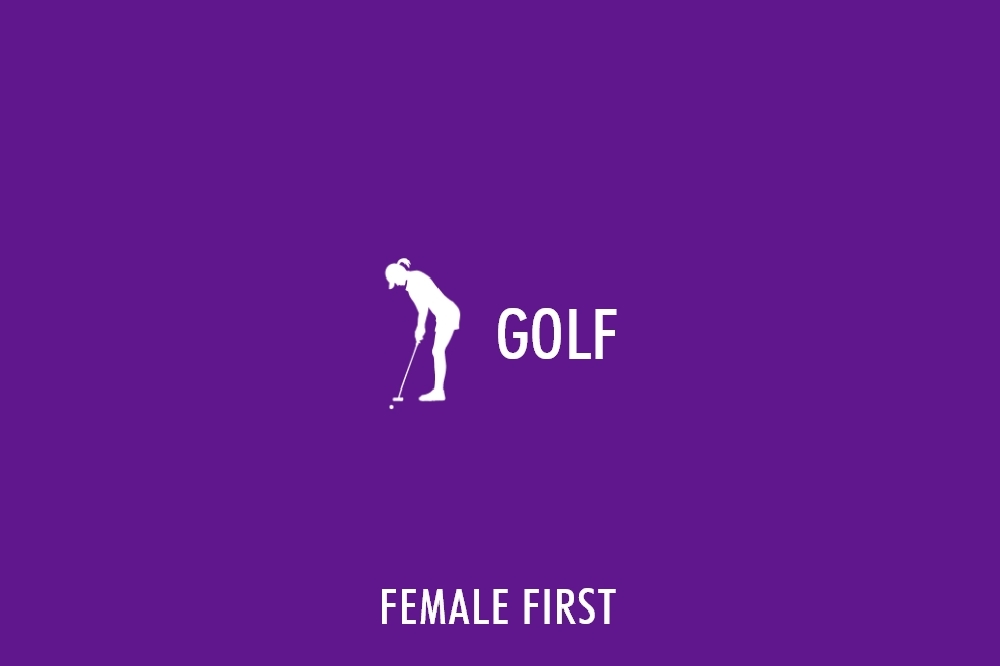By Lucy Roberts
A golf course can be an intimidating environment for women with the perception still being that golf is dominated by men, and while that is still true – it’s changing.
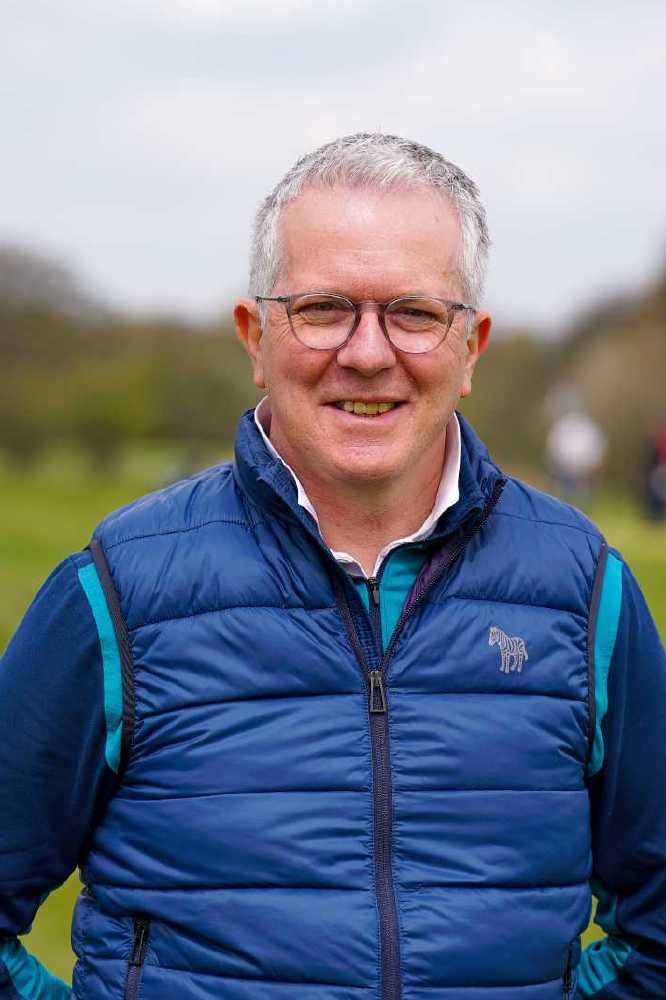
Alastair Spink
Golf coach Alastair Spink became aware of the gender split in the game and desperately wanted to change it.
Spink then set up the love.golf program which involves getting women playing the sport, not by giving them mundane lessons on the driving range, but actually getting them out on the course.
The PhD student explained why he wants to get more women involved in golf, gave his advice to women who want to pick up a golf club for the first time but feel uncomfortable about starting and revealed how the women’s golfing world differs to the men’s.
Q) What is love.golf?
A) It’s a women only golf coaching program and in its most simplistic terms the objectives have always been to create opportunities for women to play golf and by building a community of love.golfers, so women that are part of our project, that’s what we’d refer to them as, and then also by building a community of coaches that share that passion for getting more women involved in the game.
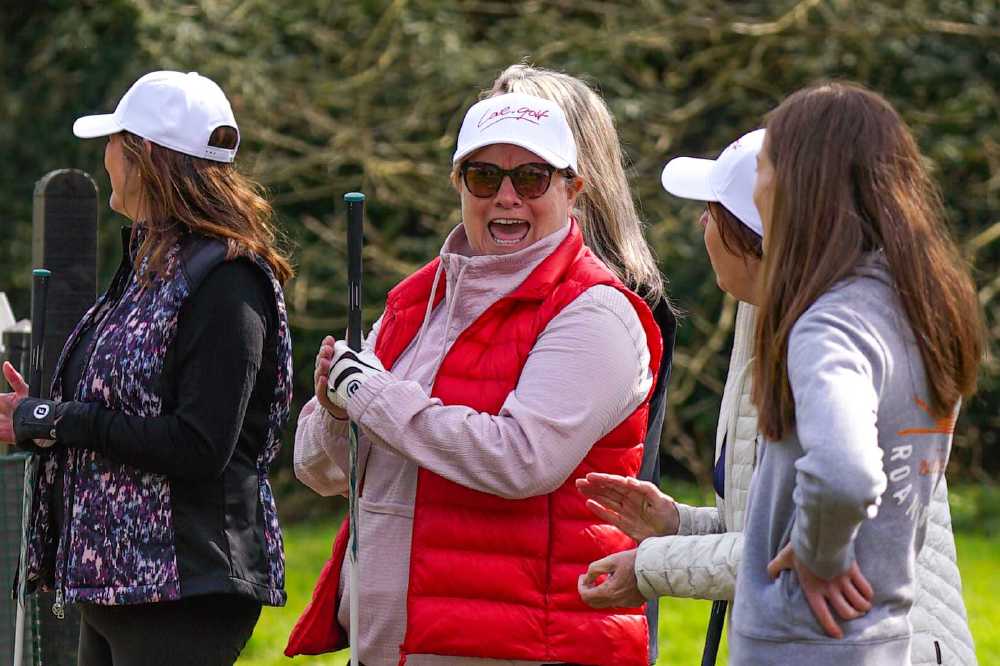
Q) When and why did you come up with the concept of the program?
A) Originally it was just an idea, so it started in 2011 and my role was split at the time, I was a coach, I’d been a coach for a long time, but I was also doing some work for England Golf National Governing Body and I just became really aware of the gender split in golf. It’s 86% men, with 14% being women that were members of golf clubs. And I just thought, well I’ll try and do something about it and see if I can change it. I grew up in a very traditional golf membership where that statistic, as dreadful as it sounds, was never questioned. I just decided, I’m going to try and do something about it, and I was based at a club that was very family friendly, we have all the facilities for anyone to come along and play, no strict dress codes, none of that at all. Yet there was still a lot of men playing and women occasionally coming and using the range perhaps with husbands, male partners, dads, grandads, whatever that relationship was. But they were never, ever getting an opportunity to go out on the golf course. So, I thought okay I’m going to create a project which is very different, rather than standing on the range just being told what to do, because that’s a very traditional golf lesson but also a very boring looking golf lesson. I thought we’ll go out on the golf course and we’ll get a group of women and I will facilitate the coaching rather than just that very old style, dictatorial delivery. That was the original idea, I worked with a golf club, Fynn Valley Golf Club, which is where I still am now, just outside Ipswich, so we worked to create some promotional material that didn’t depict female golfers, it was actually with women in jeans and trainers, sort of taking quite an empowering stance really in the way that they looked. We put that out on social media, we had 48 women sign up in just a few days and so it went from there. It resonated with quite a large group really quickly that were up for that challenge and wanted to get out and play. Then we sort of built the theory and the insight and the feedback over the years.
Q) What kind of feedback have you had from women who have been involved with love.golf?
A) I’ve ended up doing lots of research on it but at the time it was just an idea. What I asked those initial 48 women to do was just to complete a journal and they kept it private. I pinged out some questions via, I was going to say WhatsApp but we didn’t have that back then, so it was just over email and what I was really looking for was just to get some ideas of how they perceive golf, how they feel about coming to the golf lesson, what happened when they came to use the facility when I wasn’t there, conversations with family members and work colleagues and just kind of everything I could think of. It wasn’t just about the project, I wasn’t interested in what the session was like and did they enjoy it, it was more socially based than that. They kept them privately because I didn’t want to be influenced during the project because if they told me it was rubbish then I didn’t want to know until the end. They handed their journals in at the end and it was fascinating what they wrote about. They wrote about a world which I was fairly oblivious to. I’ve got three grown up boys now, but they were all decent and are decent at sport and they were very much able to combine sport and their social worlds together. And in fact, the better they got at sport, the more their friendship groups grew and the more they were rewarded for being good. But what came out of the journals was that the women were saying they were very time poor because they weren’t able to combine both in the same way. They were tending to have to separate their social world from their sport world. They had their various perceptions about golf, and they loved the project so that was good, and they’ve continued with the project. They had various perceptions about golf being not very welcoming and friendly and although there was a nice board outside the clubhouse saying we’re family friendly – they were questioning that. And there was also a lot of unsolicited advice from men. It was coming from all angles really so they were being given advice particularly from family members but then equally when they were going to play golf or use the golf range or whatever they were doing then guys they didn’t know were still very happy to offer advice which shouldn’t have been a surprise, but it was to me at that particular time.
We still carry on with those journals now. I took those journals and ended up doing a post-grad and a masters and now a PhD in gender and sports coaching. It’s been a huge influence over my life for the last 10 years but wherever we do the projects even now 10 years on we still invite any of the love.golfers that take part in a project to still submit insight and feedback through the journals. We’re always trying to make sure that we keep current and relevant as well as giving the women that are involved a bit of a sense of ownership. We want them to be part of the brand, we want them to be part of the program and contribute to how that looks going forward.
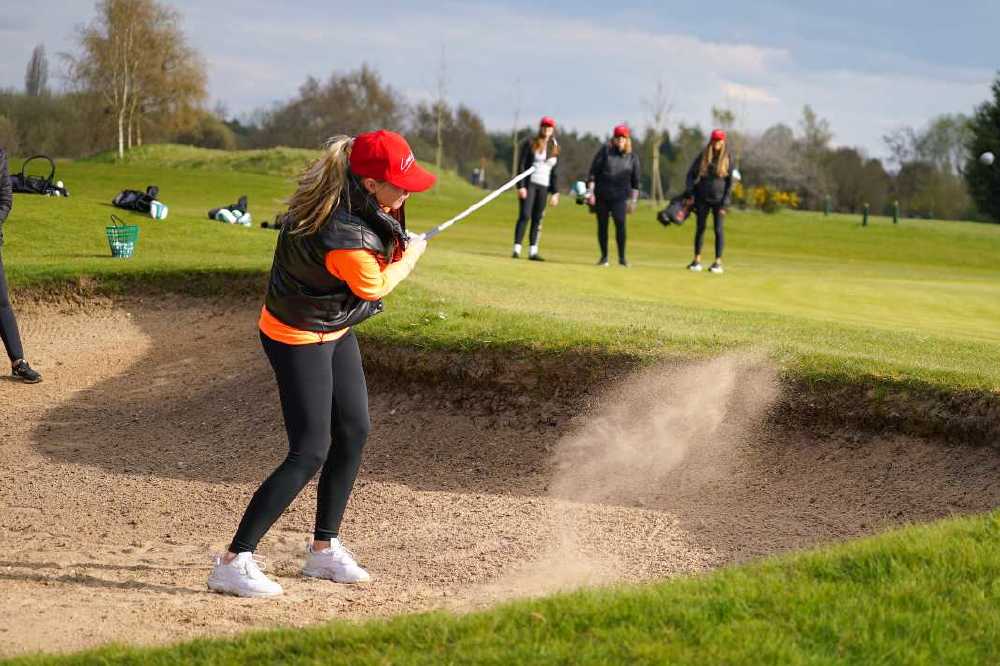
Q) You’re currently studying for a PhD at the University of Birmingham, how’s that going and how will it improve your work?
A) Covid is not helping I’ve got to be honest. My masters was looking at participants, so it was looking at young women reflecting upon their time growing up in golf clubs. The PhD originally was going to be a follow on from that, so I was going to look then at participants in golf programs, not specifically love.golf but just in a golf environment over three different countries. Of course, not being able to travel or speak to people too easily has kind of scuppered that one a bit. I’ve had to have a bit of a reset on it so it’s now focussing on female coaches in the UK, and the focus will be looking at and spending time with female coaches not particularly about their playing experiences but more about like how the love.golf journals started, so their lives and how they have to negotiate their profession through golf really. In our project, we’ve got just under 50 coaches and 37% of those are female, which is something we’re really pleased about, getting towards that 50/50 ratio will be absolutely amazing. We’ll continue to use the research to shape the projects from the participants but also hopefully we’ll have a good study to help coaches now but also female coaches coming into the sport and hopefully changing a few opinions and creating a bit of impact. It’s really important to me that the study is read and gets out there, if it’s only read by me and my supervisor and examiner well then what good is that? So, we need to get it out there. It’s always been the objective, one of the fundamentals of love.golf is that we are respectfully rebellious in as much as trying to get current info out there and just questioning and challenging current practice really. Having spent the majority of my life not questioning the way we do things I absolutely now love questioning everything that we do and just trying to look through, if I can, a neutral gender lens just to try and see how it looks.
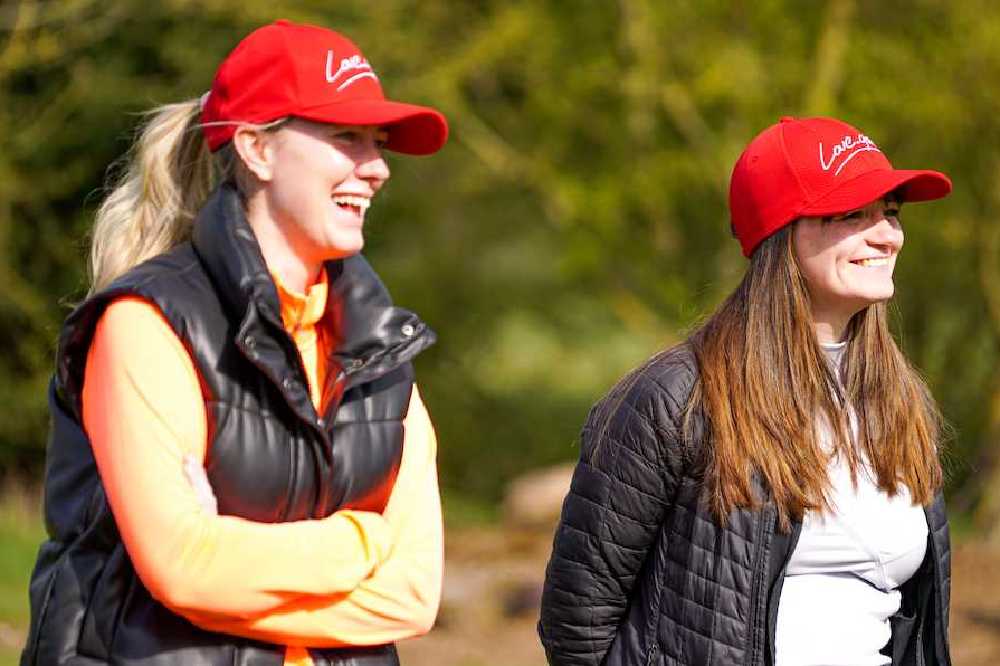
Q) What would your advice be to women who are thinking of starting golf but don’t know where to start or are intimidated by the golf environment?
A) I think golf is changing so to start with I think it’s right to say the perceptions of golf years back were traditional, very male dominated from top to bottom, from governance through to grassroots level, so that is changing. There now are more women involved in the decision making but the perception is still that it’s very stuffy, very traditional. I think certainly women that take part in projects and go to golf clubs will now start to see a slightly different stance from golf clubs, so I think that’s really important. I think our program stands for empowering women and daring to be different and this respectfully rebellious stance, so find the project and a coach that stands for those values and there are more and more out there now. It has changed, coaching has changed, there’s more opportunities for women to be involved in sport, there’s more role models, there’s now much more of a, and rightly so, a real push to highlight the successes and challenge the old style of thinking. Also, it’s really important because I can do all the research in the world, but I have no idea what it’s like to walk into a golf club as a new golfer and as a female golfer. So, the only way we can change and create impact is to listen to participants and understand the way they view the world. I think when you have people coming into an industry that aren’t going to accept it for how it is and that’s massively important that you have a voice to be able to say, hang on, that’s not right, and get that support. And I think that support has to come from women but it’s also got to come from men as well. And not in a patronising way but just other men to say, you’re right, this isn’t right. We shouldn’t be doing this based solely based on gender, it should just be the right thing to do across gender.
RELATED: Everything you need to know about professional golfer Jessica Korda
Up until she was 15 years old, Korda lived and played golf in the Czech Republic until her and her family moved to the United States in 2008, where the golf didn’t change, but the flag she played under did. During her early years in the game, Korda played golf with her dad, former Tennis professional Petr Korda, which he used to describe as a retirement sport, that was of course until both his daughters found success in the sport. The dad and daughter duo used to play at the same club in their home country, where they worked with Jonathan Yarwood who coached the winner of the 2005 US Open Michael Campbell...
